All materials can be downloaded/viewed for free with user registration. Please login or create an account .
Your Search Results (17)

Starter Kit for US History & Government 9-12
This guide gives users a brief overview of our approach (question-based media decoding) and materials (e.g., lessons) available for free from the Project Look Sharp website for a particular level and subject.
0 downloads
View
Constructivist Media Decoding
Media Literacy Lesson Design
Document Selection
Question Design
Social Studies
High School

Starter Kit for Social Studies 6-8
This guide gives users a brief overview of our approach (question-based media decoding) and materials (e.g., lessons) available for free from the Project Look Sharp website for a particular level and subject.
0 downloads
View
Constructivist Media Decoding
Media Literacy Lesson Design
Document Selection
Question Design
Social Studies
Psychology
Middle School

Starter Kit for Science 6-12
This guide gives users a brief overview of our approach (question-based media decoding) and materials (e.g., lessons) available for free from the Project Look Sharp website for a particular level and subject.
0 downloads
View
Constructivist Media Decoding
Media Literacy Lesson Design
Document Selection
Question Design
Science And Environment
Middle School
High School

Starter Kit for Elementary All Subjects 3-5
This guide gives users a brief overview of our approach (question-based media decoding) and materials (e.g., lessons) available for free from the Project Look Sharp website for a particular level and subject.
0 downloads
View
Constructivist Media Decoding
Media Literacy Lesson Design
Document Selection
Question Design
Social Studies
English Language Arts
Health
Science And Environment
Math
Arts
Psychology
Media Production
Upper Elementary
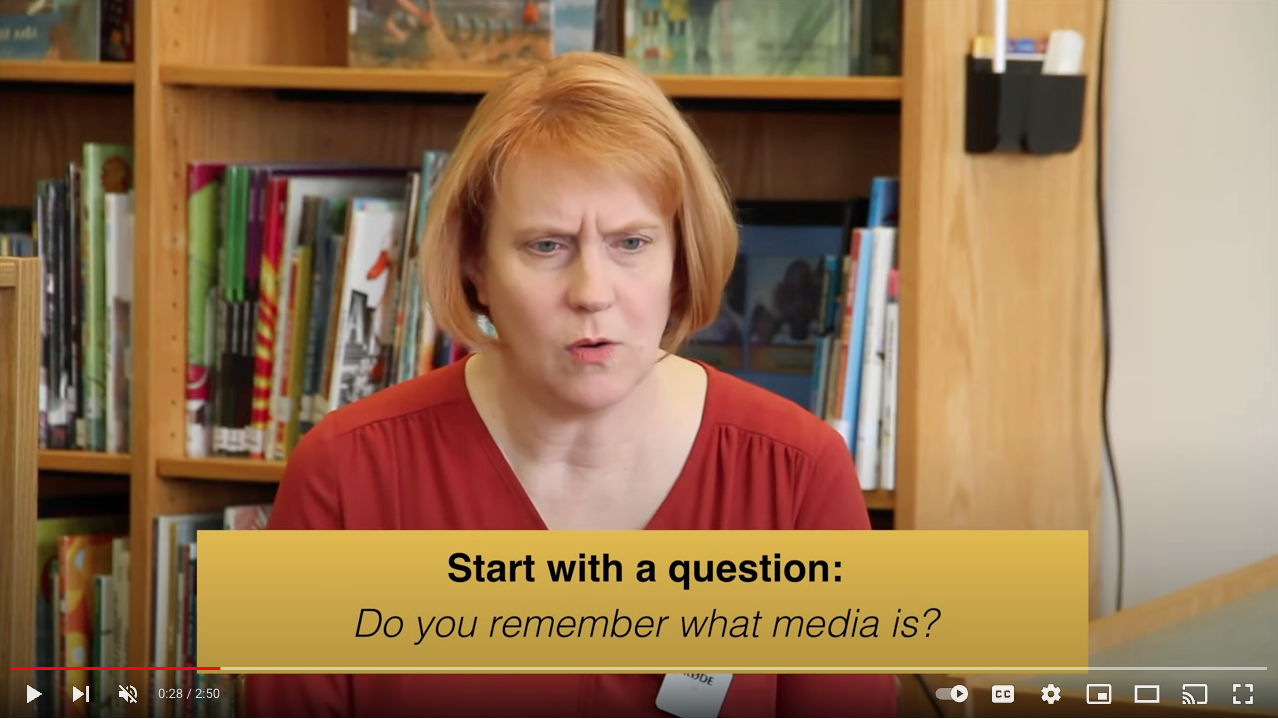
Demonstration Video: What is Media - Kindergarten
School librarian, Michele Coolbeth, has her students identify media, including in their clothing – and then reflects on the importance of teaching young students to recognize that media is all around them.
0 downloads
View
Constructivist Media Decoding
Media Literacy Lesson Design
Question Design
Social Studies
English Language Arts
Media Production
Pre-service Teacher Education
Lower Elementary
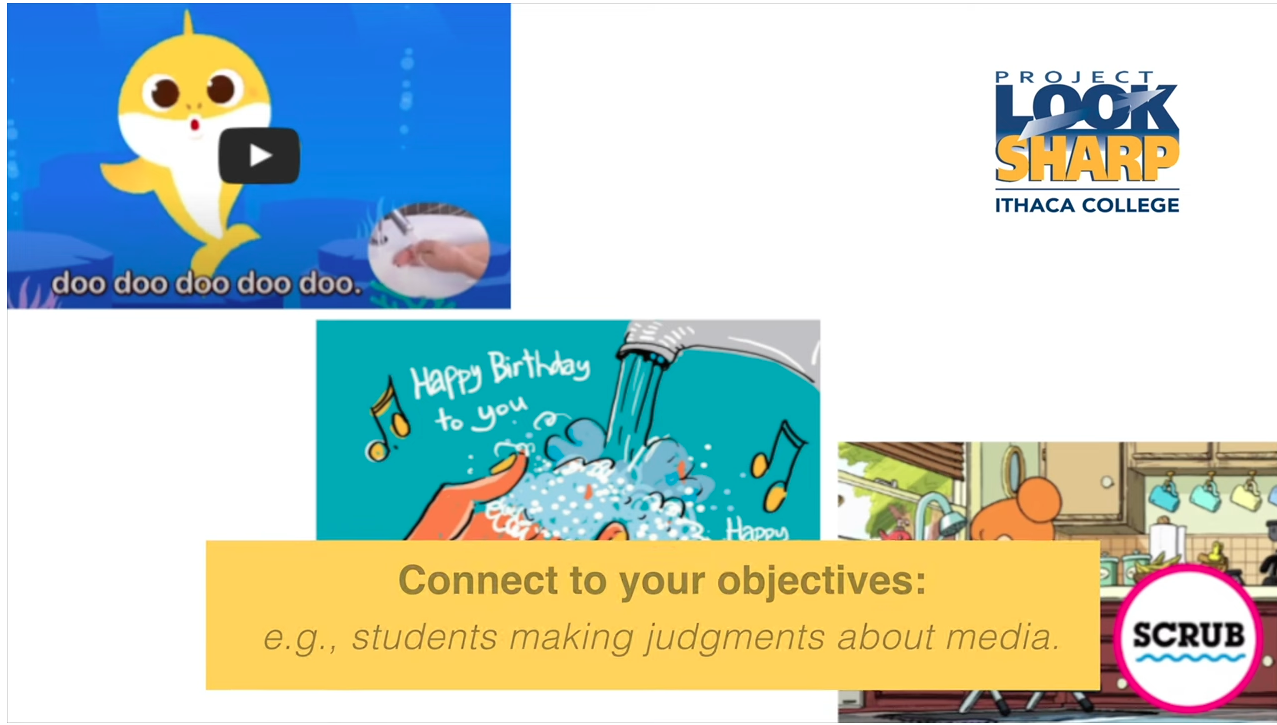
Demonstration Video: Wash Your Hands - Kindergarten
School librarian, Michele Coolbeth, has her students reflect on the qualities of different media forms (videos and a poster) while learning how to wash their hands. (Total Time: 2:13) Published 2023
0 downloads
View
Constructivist Media Decoding
Media Literacy Lesson Design
Question Design
English Language Arts
Health
Pre-service Teacher Education
Lower Elementary
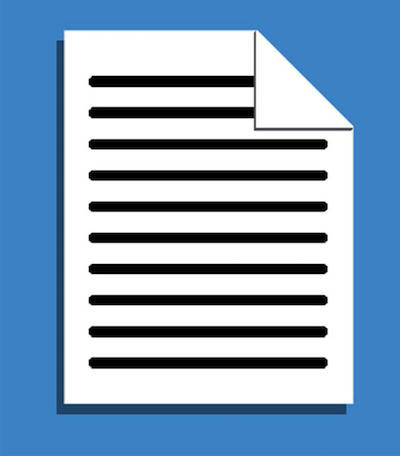
Briefing: Project Look Sharp's Decoding Media Constructions and Sustainability
Antonio Lopez, in his coda to Greening Media Education, summarizes the complex set of skills needed “to bring ecologically oriented cultural practice into the realm of media education (which) promotes systems thinking, collaborative learning, critical thinking, lifelong learning and digital media literacy.” This article offers cases studies of two Look Sharp lessons, one for elementary age students and another for upper level high school, each of which was designed with these skills in mind as a way to bring Lopez’s vision into practice in the classroom.
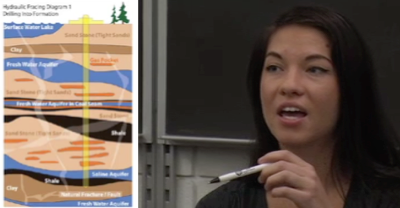
College Level: Hydrofracking, Media and Credibility
Related to kit: Media Constructions of Sustainability: Fingerlakes
This 9 minute annotated video demonstrates constructivist media decoding using the lesson "Exploring the Impact of Hydrofracking on Aquifers," where college students analyze pro and anti-fracking diagrams.
0 downloads
View
Constructivist Media Decoding
Critical Thinking And The News
Assessing Credibility & Bias
Document Selection
Question Design
Social Studies
Science And Environment
College
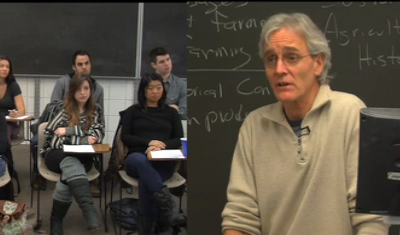
College Level: Farming, Community and Sustainability
Related to kit: Media Constructions of Sustainability: Food, Water, and Agriculture
An example of leading a class through a constructivist media decoding using a lesson from our kit, Media Construction of Sustainability. Students in this video examine clips from a film and a commercial to decode farming in the US.
0 downloads
View
Constructivist Media Decoding
Social Studies
Science And Environment
College
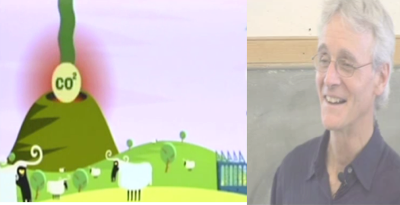
High School Science: The Great Global Warming Swindle
An example of leading a class through a constructivist media decoding using a lesson from our kit, Media Constructions of Global Warming. Students analyze a short video clip from the film The Great Global Warming Swindle, compare the information in the clip with a chart, and reflect on issues of credibility and bias in media representations and our own biases when evaluating information.
0 downloads
View
Constructivist Media Decoding
Critical Thinking And The News
Assessing Credibility & Bias
Science And Environment
High School
College
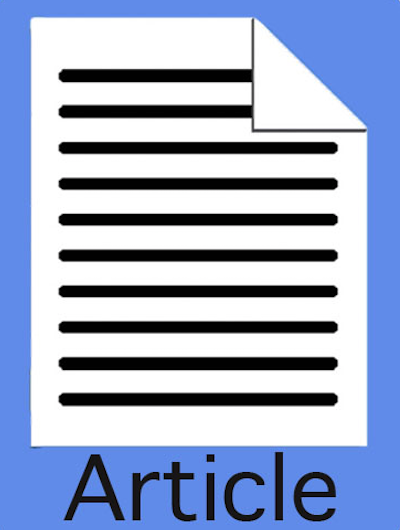
Sustainability Education and Media Literacy
Related to kit: Media Constructions of Sustainability: Food, Water, and Agriculture
This article looks at how the topic of climate change can often provoke deep emotions in students, and suggests that instead of shying away, teachers should use media literacy activities to foster discussions of what the future holds. The author stresses the importance of connecting to the emotional lives of students when raising the complex issues around sustainability.
0 downloads
Download
Media Literacy Lesson Design
Youth Culture And New Technologies
Do No Harm
Question Design
Social Studies
Science And Environment
Upper Elementary
Middle School
High School
College

Credibility, Information and Science
Designed for secondary science and environmental studies teachers, this 2 hour to full day workshop will explore the role of the internet and other media on our students understanding of information.
0 downloads
View
Constructivist Media Decoding
Media Literacy Lesson Design
Assessing Credibility & Bias
Science And Environment
High School

Teaching Media Literacy & Sustainability for Younger Learners
Related to kit: Media Constructions of Sustainability: Lower Elementary
This webinar offers pedagogical techniques and curriculum materials to support a deeper understanding of how to use media documents that: support content teaching about water quality, climate change and hunger, introduce media production as a way to deepen media literacy awareness, and encourage core subject integration of ELA, math, science and social studies.
0 downloads
View
Media Literacy And Critical Thinking Integration
Constructivist Media Decoding
Media Literacy Lesson Design
Youth Culture And New Technologies
Document Selection
Question Design
Lesson Elements
Lesson Conception
Social Studies
English Language Arts
Health
Science And Environment
Math
Media Production
Upper Elementary

Teaching about Climate Change Using the Tools of Media Literacy
This webinar offers pedagogical techniques and curriculum materials to support a deeper understanding for how to use a wide variety of media documents that: - Support content teaching about climate change - Examine media representations of global warming related to media literacy concepts of credibility, bias and impact - Encourage strong sense critical thinking by asking questions about all media messages, not just those with which we may disagree.
0 downloads
View
Constructivist Media Decoding
Critical Thinking And The News
Assessing Credibility & Bias
Document Selection
Question Design
Social Studies
Science And Environment
High School

Media Constructions of Energy Choices: Empowering Students to See Through the Smoke
Related to kit: Media Constructions of Sustainability: Food, Water, and Agriculture
This webinar offers pedagogical techniques and curriculum materials to support a deeper understanding of how to address issues of bias in media documents about energy choices. Learn to to seek out and use media sources to deepen critical thinking practice about authorship, purpose, credibility and economics.
0 downloads
View
Constructivist Media Decoding
Media Literacy Lesson Design
Assessing Credibility & Bias
Document Selection
Question Design
Lesson Conception
Social Studies
Science And Environment
High School

Where Media Literacy Meets Sustainability Education
Related to kit: Media Constructions of Sustainability: Fingerlakes
The webinar offers educators and teachers-in-training pedagogical techniques and curriculum materials to support constructivist media decoding to help students engage in critical thinking about the complex environmental, economic and social systems that underly sustainability.
0 downloads
View
Constructivist Media Decoding
Assessing Credibility & Bias
Science And Environment
High School

Teaching Critical Thinking Through Media Literacy
Constructivist media decoding in the science classroom trains students to carefully examine information and messages in different types of media; to interpret meaning while applying knowledge and identifying document-based evidence; to ask a consistent set of questions about all media messages that address sourcing, meaning, and credibility; to draw well-reasoned conclusions after weighing the evidence, evaluating different interpretations, and reflecting on their own biases; and to share their observations and conclusions and defend their analysis. The teachers saw this technique as a way of teaching inquiry related to everyday messages in the media. By Chris Sperry, Science Scope, Summer 2012.
0 downloads
Download
Constructivist Media Decoding
Assessing Credibility & Bias
Fair Use Copyright Law
Question Design
Science And Environment
Middle School
